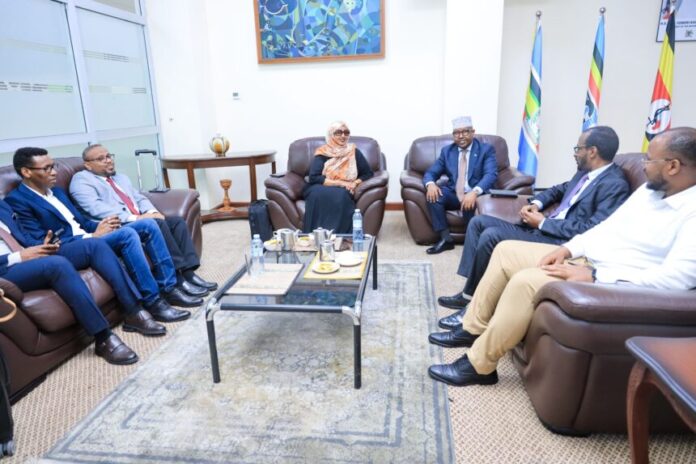KAMPALA, Uganda — Ahmed MoFiqi, Somalia’s Minister of International Affairs, touched down in Kampala, Uganda, on Monday to hitch leaders and delegates from throughout Africa for the African Union (AU) Summit.
The summit’s agenda is centered on the Put up-Malabo Complete Africa Agriculture Improvement Programme (CAADP), with a give attention to enhancing agricultural productiveness, guaranteeing meals safety, and selling sustainable growth all through the continent.
The three-day summit, which commenced right this moment, is a vital platform for African nations to reassess and recalibrate their agricultural methods in mild of current challenges similar to local weather change, battle, and financial instability. Discussions will embrace coverage reforms, funding in agricultural innovation, and the implementation of sustainable farming practices.
MoFiqi’s participation underscores Somalia’s dedication to regional cooperation in addressing a few of the most urgent points affecting the Horn of Africa. Somalia, nonetheless recovering from years of battle and dealing with ongoing safety threats, views the summit as a possibility to achieve help and share insights on the way to stabilize and develop its agricultural sector, which stays important for the nation’s financial restoration and meals safety.
The CAADP, initially launched in 2003, goals at growing agriculture-led development by at the very least 6% each year, decreasing meals insecurity, and bettering sustainable administration of land and water sources. The Put up-Malabo agenda, named after the Malabo Declaration of 2014 the place African leaders dedicated to those targets, seeks to accentuate efforts in direction of these targets by 2025.
Key subjects on the desk embrace the combination of expertise in farming, cross-border commerce facilitation for agricultural merchandise, and techniques to fight the consequences of local weather variability on agriculture. The summit additionally offers a venue for member states to discover partnerships with worldwide organizations and personal sectors for funding and technical help.
Because the summit progresses, there will likely be a sequence of bilateral conferences, roundtables, and workshops the place ministers and consultants will delve deeper into particular areas of agriculture, from seed expertise to market entry for smallholder farmers.
MoFiqi is predicted to interact in dialogues that might result in new collaborations or enhancements in present cooperation frameworks, significantly with neighboring international locations and people sharing comparable agricultural challenges. His attendance can be a gesture of Somalia’s reintegration into regional politics and economics, signaling a step in direction of normalization after years of isolation because of inner strife.
The outcomes of this summit may have far-reaching implications not just for Somalia however for the broader African area, aiming to foster a future the place agriculture drives financial development, ensures meals sovereignty, and adapts to the altering world setting.










